Ramp rate limiter (with Hybrid EMS)
Last review:
About the ramp rate limiter
To avoid rapid changes in the active power and reactive power output, the Ramp rate limiter feature allows the power generating system to follow a defined gradient to increase or decrease the active power output after receiving a new setpoint from the grid operator/third party.
The ramp rate limiter feature is available for active and reactive power control and is applied to the grid operator/third-party setpoint. The functions are described below.
Active power
Generally, the ramp rate limiter always applies to setpoints.
In PV self-consumption mode, internal constant setpoints are applied. As these setpoints are constant and do not change, the ramp rate limiter has no effect.
In band-shaving mode, the ramp rate limiter has an effect because the internally generated setpoints change over time.
In closed-loop mode when a setpoint changes, the correction value always jumps to the measured actual power production. This prevents delays in the system’s power adaptation.
Ramp up | The ramp rate configured for ramp up only applies to the new setpoint from the grid operator/third party if this increases the active power output. |
|---|---|
Ramp up/ramp down | You can define separate ramp rates for increasing and reducing the active power output:
|
Soft start | A soft start ramp rate will be applied when the active power at the point of common coupling is ≤ 0 W. The ramp rate remains in effect until the new setpoint is reached. Example: If the active power is 0 W and the setpoint is 0 %, then:
|
Activation | Only via the toggle on the user interface |
Configuration of ramp rates | Via the user interface |
Reactive power
Ramp up | Applies to the new setpoint from the grid operator |
|---|---|
Activation | Only via the toggle on the user interface |
Examples
Setpoint grid operator input signal | Output signal | |
|---|---|---|
Ramp rate limiter off | 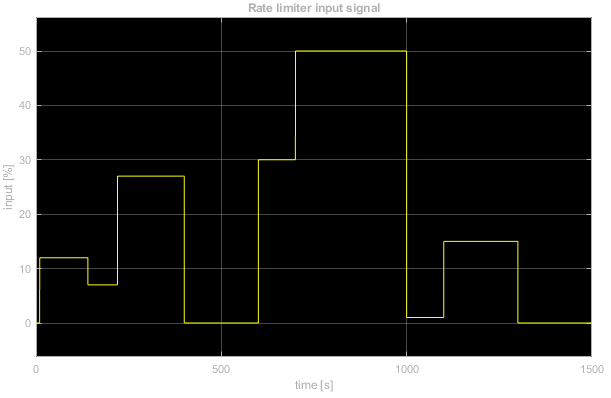 | 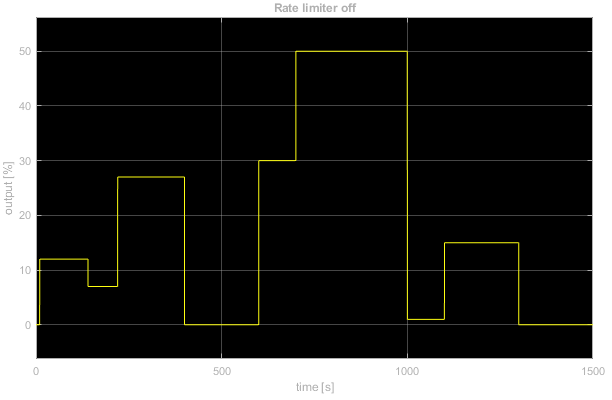 |
Ramp up | .png?inst-v=d4fa6eeb-abd5-4b89-8713-e89c3c274e8c) | .png?inst-v=d4fa6eeb-abd5-4b89-8713-e89c3c274e8c) |
Ramp up/ramp down | .png?inst-v=d4fa6eeb-abd5-4b89-8713-e89c3c274e8c) | 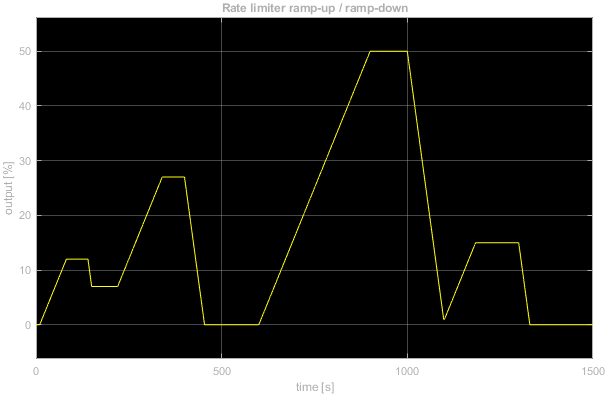 |
Soft start | .png?inst-v=d4fa6eeb-abd5-4b89-8713-e89c3c274e8c) 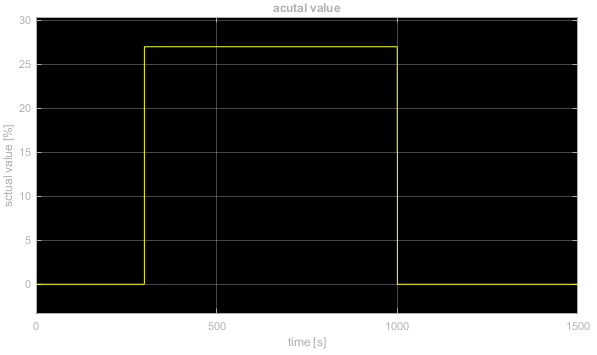 | 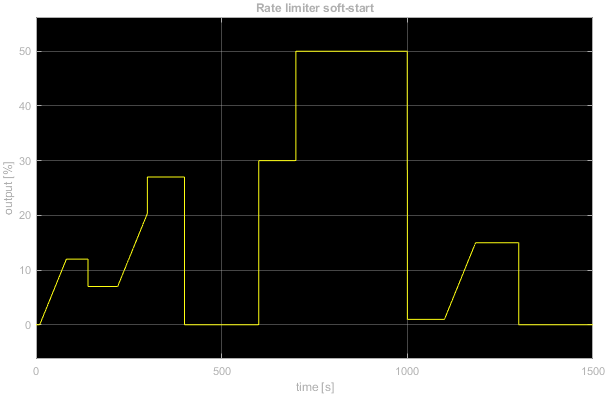 |
.png)